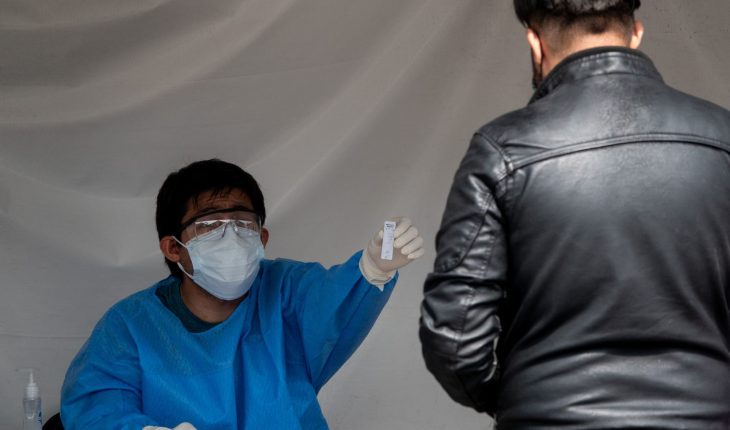In a central neighborhood of Mexico City, a man offers fake certificates of vaccination against COVID-19 to those who require it to travel abroad, assuring that the deception will go unnoticed by the authorities.
The shenanigan is the newest “service” available in Santo Domingo, a busy sector of the historic center known forever for its printers, scribes and counterfeiters.
To the menu of birth certificates, driver’s licenses, professional titles or apocryphal passports was added a few days ago the one of vaccination certificates against the coronavirus.
Read: COVID vaccination certificate: find out what it is and where to process it
Clients are usually travelers whose immunization schedule is incomplete or vaccine recipients not admitted to the country they want to visit.
“If they vaccinated it with the Chinese, here we changed it to Pfizer or Sputnik V,” says Cris, a man in his 50s, AFP said during a tour of the area.
Undeterred by the presence of some police officers, Cris details to those interested his fee, which ranges from 1,100 to 2,000 Mexican pesos (between 56 and 100 dollars).
“In two hours he has his document,” promises the salesman, who wears a blue mask that covers half his face.
The Ministry of Health recently announced that vaccinated people can download their immunization certificate, useful for traveling abroad and other procedures, free of charge through an official website.
“Here come people who only have one vaccine (out of two) or need to exchange it for another,” Cris explains.
In Mexico, of the 126 million inhabitants, 21.3 million received a complete vaccination schedule, according to official data as of July 15. The brands that apply are Pfizer, AstraZeneca, Sinovac, Sputnik V, Cansino and Janssen.
Technological fraud
The official document has a QR code that when scanned redirects those who consult it to a government page where it is certified that the holder has received the complete immunization. Counterfeiters offer to alter that code.
Cybersecurity specialist Carlos Ramírez explains that to achieve this, criminals would have to have “the ability and sagacity to set up their own technological domains” and make faithful copies of government websites.
Subsequently, they can “load each QR with the data that customers ask them for”, a challenging possibility but not impossible for computer criminals.
Mexico’s Health Ministry did not respond to a request for information from AFP about its digital security protocols and the measures it will take against these counterfeits.
The issuance of apocryphal certificates is not the first fraudulent activity to emerge in the pandemic.
Fake Pfizer vaccines, which were sold for up to $1,000 a unit, were identified in Mexico and Poland, the drugmaker reported last April.
In March, Mexican authorities seized a shipment of alleged Sputnik V vaccines on a private plane bound for Honduras. Russia’s Direct Investment Fund confirmed that the doses were false.
In Santo Domingo, for about $30, adulterated copies of laboratory tests negative for COVID-19 can also be purchased.
The penal code punishes the falsification of public documents with imprisonment of four to eight years.
Mexico is the fourth hardest hit country in the world in absolute numbers, with 235,740 dead, behind the United States, Brazil and India.
What we do at Animal Politico requires professional journalists, teamwork, dialogue with readers and something very important: independence. You can help us continue. Be part of the team.
Subscribe to Animal Politico, receive benefits and support free journalism.#YoSoyAnimal





